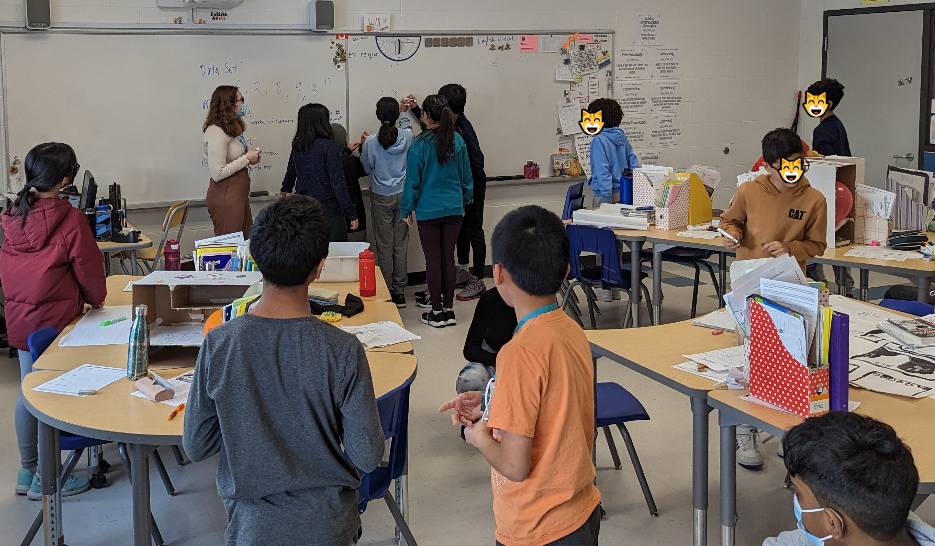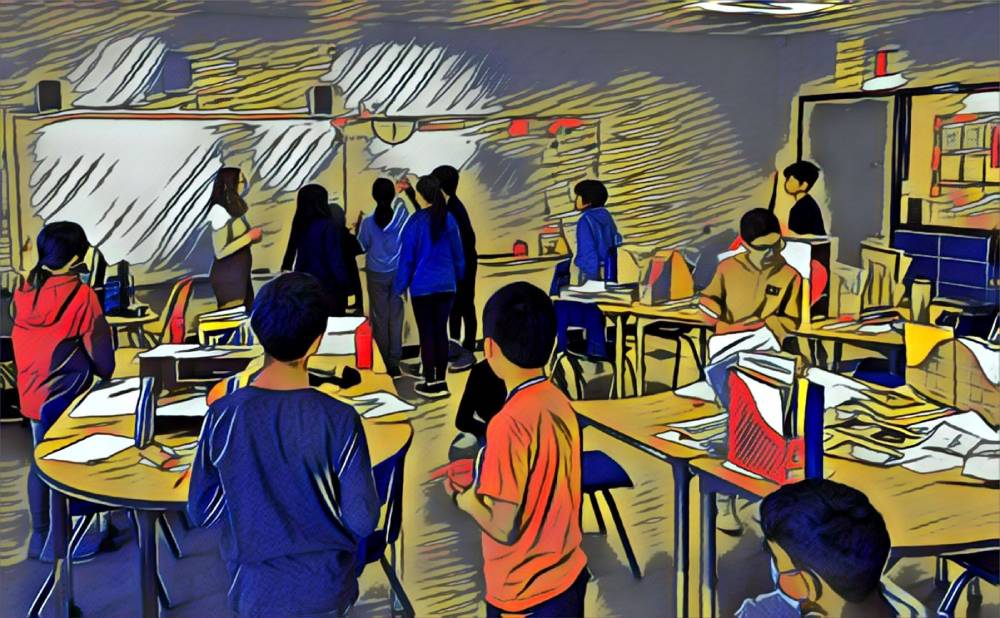This post has nothing to do with trade unions other than for me to publicly reiterate how important they are in the fight against oppressive, racist, exploitative, and elitist status quo economic structures. The golden rule has nothing to do with who has the gold getting to make the rules. It’s about treating others with the dignity and respect regardless of station or social status. I’m writing about labour as a positive antithesis to any entitled money addled capitalist con-drones deign to read something on a site other than Truth or Rebel media not something that is maligned for seeking acknowledgement and fairness for professionalism and hard work.
Now back to the regularly scheduled post already in progress.
Labour is in interesting word. It has roots in Latin (labor)* and can be a noun, adjective, and or verb. Labour is a clear description of subject and action. In many ways, labour encapsulates everything we know as educators. Teachers, like labour are nouns and verbs. We are subject and predicate. WE are purpose and passion in perfect action. It must be the sunshine or the good vibes of April that have me reflecting like this because lately there has been so much good happening all around in education, and it is outshining everything else on the horizon.
Since September until now students have been participating in competitions ranging from robotics, chess, athletics, and skills(animation, construction, media arts – to name a few). To no one’s surprise they are coming back energized from their experiences – teachers too. It was as if the void of the past 3 years are truly being left behind now as we focus our labours on the present and future. With so many positives happening in schools I think it would do us all good to share more of the good news going on as a result of our collective labour(s).
In my last post loves I share about all the good things going on in my school right now, and how we need to hear/see more of the positives happening in our profession rather than nonstop negative narratives from non-educators intended to devalue the work we do each day. This got me weighing what gets shared and how it get shared when it comes to all of the good news going on in classrooms. Is once a week per classroom enough? Is everything worth a post? I have to believe these decisions lie ultimately with the individual educator in accordance to privacy policies. What we have to avoid in one breath is making it performative and in the other feeling like we are not doing enough when we choose not to share.
I know that many schools and teachers use Twitter/Instagram accounts to various extents myself included. Typically, I have tried to post moments of levity from the classroom or positive support for fellow educators doing and contributing great things via #onted. When it comes to sharing, student work is the focus while they themselves are blurred in any images shared. I have found that the Prisma app installed on my smartphone is far better than sticking emojis on all the faces.


When it comes to resources I am always open to sharing freely and give mad props to other educators doing the same. I especially love sharing any TED Ed lessons that I’ve created, and am happy to respond to educators looking for ideas. As you grow your PLN on social media, you will find lots of like minded and generous educators doing the same with their work.
Whether it is on ‘socials’ or shared with the amazing staff in your building, it becomes very clear that our dedication and labour on behalf of our learners is what we all need to see more of in our feeds. Our labour(s) are worth celebrating in and out of our classrooms.
*The Latin etymology for labor is obscure: the noun may be related to the verb lābī (which has a long ā ) “to move smoothly, slide” (commonly with implication of downward movement). Lābī in its turn may be related to labāre (with a short a in the root syllable) “to be unsteady on one’s feet, falter, totter.” via dictionary.com
“Middle English, from Anglo-French labur, from Latin labor; perhaps akin to Latin labare to totter, labi to slip” via merriam-webster.com
